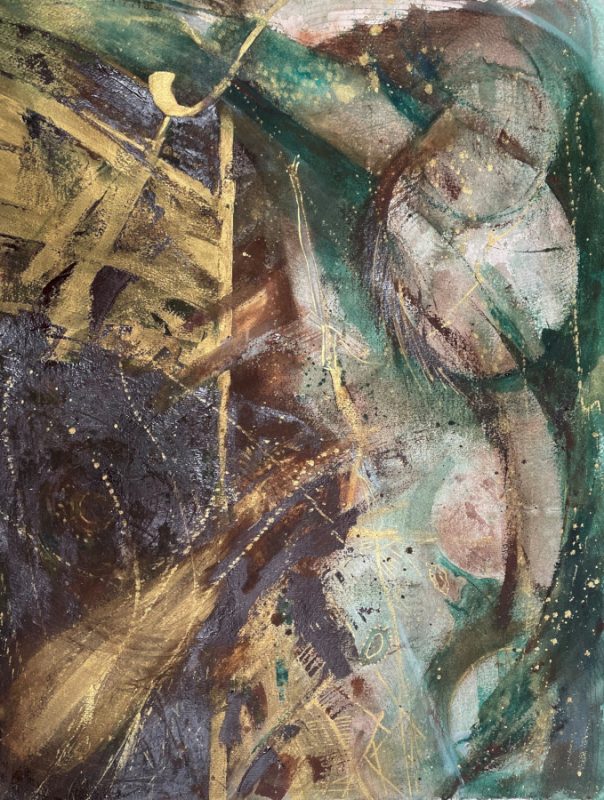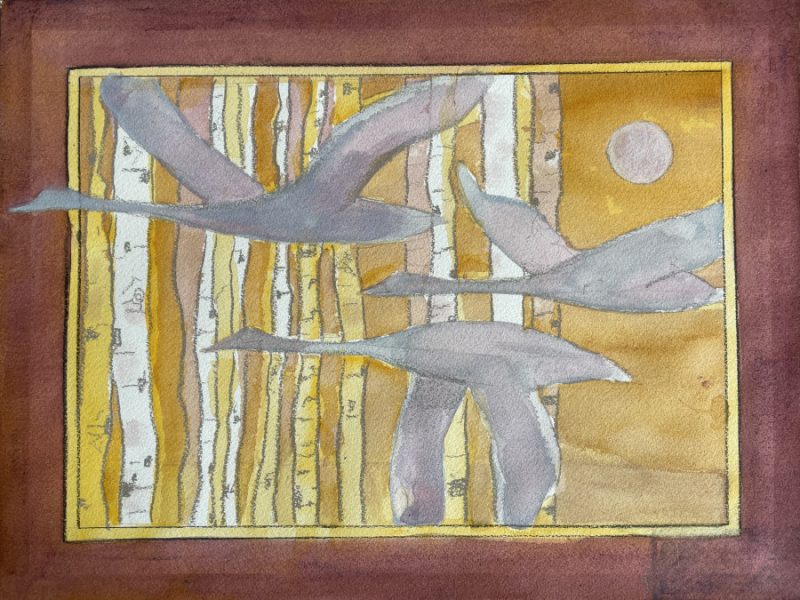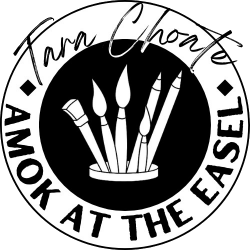Technical virtuosity alone does not result in significant art.
Hours upon hours in front of an easel may not yield any significant art.
It isn’t any one thing that makes a painting significant.
Significant paintings make you think, wonder, hopeful or depressed.
Significant paintings leave you speechless.
Significant paintings alter your blood pressure.
Significant paintings could be a single line, monochromatic, tiny or large.
Significant paintings do not dictate, they allow you interpret.
A few months ago, a Facebook friend posted the above words along with an image that was attributed to a Canadian Watercolor Society post. Unfortunately, I cannot find an organization by that exact name, so I am unable to find a specific attribution. Nevertheless, the sentiment rings true.
This weekend I made a concerted attempt to finish “What Are We Propping Up?” for entry into the ISEA exhibition.

Whether it’s “finished” or not, it’s done because I’m out of time and talent.
In between finishing the above, I did play a little and came up with this.

I’m not sure if it’s done, so it’s still on my desk while I think about it.
Not about painting
This week was a tough one. Tuesday/Wednesday night was spent with almost no sleep, resulting in me getting out of bed at 1am and writing an angry, unsent letter just to get my thoughts out. The rest of the week was then spent putting one foot in front of the other. I was so thankful this Friday was my day off! I toyed with the idea of heading down to the beach house, but I decided to stay here in order to finish “Propping”. Not unrelated, season 2 of Bridgerton dropped (the male lead this season, unfortunately, is not a match for the sexy Regé-Jean Page of season 1, but the female lead was great) and a new puzzle had arrived. So, I paInted, tidied up, watched TV and puzzled, cleared out my email, and pondered the issues that led to this week’s meltdown.
In a coincidence that seems slight spooky, I picked up The Hilarious World of Depression (THWOD) from the library on Thursday and started listening to it while I went up to Portland on Friday for a nosework class. Those of you who have read this blog or known me for a while know I struggle with major depressive disorder and generalized anxiety disorder. I’ve had them since I was twelve and when I was 25 I began therapy and medication. I like a quote in THWOD that basically talks about how medication gets you to sea level; without the medication, you’re under water, but with the medication you can breath and try to save yourself. About four years ago, the great insurance provider (GIP) decided that the medication I had been on for 18 years was no an option. I had objected and fought this many times over the years, occasionally trying new things. But after the inevitable disaster manifested, I always went back to Paxil. This time the GIP said “you’re not going to get it.” And they switched me to Zoloft.
At first, I was pleasantly surprised. While there were issues, and that summer I just about lost my job because of the various effects, I didn’t immediately drop into suicidal ideation. After a few months, things seemed to stabilize. Then Mom got sick and died, then COVID; in other words, I have no idea if Zoloft might have been okay in other circumstances, but it’s not working for me, right now. During the last four years, I have talked to the GIP four times about medication changes, and they keep just upping the dose. What’s odd to me is that Zoloft is supposed to be good for depression and less beneficial for anxiety, whereas Paxil is just the opposite. And yet, for me, Zoloft can control my anxiety (in sufficient dosage) but cannot address my depression. I have tried to explain this several times, and have been told “I’m wrong.” I love GIP.
Reading THWOD made me realize that I need to deal with this. While many details in THWOD describe me to a tee, I understand depression enough that I do not consider it abnormal. What’s good about reading THWOD is the understanding of someone else, a community really, who are all saying, “this really is hard.” I guess I needed to hear that.
So, among the other things I did this weekend, I sent an email to GIP asking for another medication review. That’s a significant step forward.

